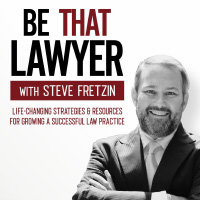
A few months ago, I was doing a workshop on business development for a client. One of the participants was the managing partner who asked me: “What is the most common issue you work on with your clients?”
I thought briefly about the question and then I realized that there is an obvious answer: follow-up. In fact the issue of follow-up is relevant in all of my coaching work, not just the coaching I do on business development.
In marketing, staying top of mind over time is crucial. Follow-up ensures that potential clients and referral sources will think of you when an opportunity presents itself.
Follow-up is also crucial for anyone doing career exploration. Employers like to hire professionals who are interested in their firm or company. Good follow-up demonstrates your interest.
And a good leader must find appropriate ways to follow up with their team to make sure everyone is on the same page and feeling motivated to do their best. Follow-up highlights who on the team may be hitting some stumbling blocks.
The challenge for lawyers is that we are generally risk averse. We don’t like rejection. When we don’t hear back from a potential client (i.e. after having a promising initial consultation), we assume they are not interested in working with us.
If an accountant who serves clients in the same industry has cancelled lunch, we assume they are not interested in building a referral relationship.
The truth is, there are many reasons people don’t respond or cancel appointments. Perhaps they are busy. Maybe your email ended up in their spam folder. Or maybe there was a death in the family or they are sick.
The key is to assume nothing when you haven’t gotten a response.
Unless you have solid reason to believe the other individual isn’t interested in connecting, your default should be to follow up. That’s true whether you are trying to build your law practice, trying to advance your career, or trying to develop your team.
To put it in legal terms, don’t look for proof beyond a reasonable doubt that you should follow up. Don’t think you need to get past summary judgment on the issue before you decide to act.
All you need is probable cause. If there is probable cause to think that it might be worth reaching out a few more times, then “Just Do It!”
Image by DALL-E.








